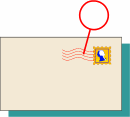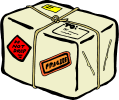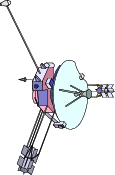BASEBALL
Baseball is the most popular sport in America. In a baseball game there are two teams of nine players. Players must hit a ball with a bat and then run around four bases. A player who goes around all the bases scores a run for his team. The team that finishes with more runs wins the game.
Where did baseball come from? No one knows for sure. Many people believe that the idea came from a game played by children in England. Oher people believe that a man named Abner Doubleday invented the gam in Cooperstown, New York, in 1839. But the first real rules of baseball were written in 1845 by Alexander Cartwright. Two teams from New York played a game following Cartwright's rules. The rules worked well. Soon there were many teams.
These early teams were not professional. They played only for fun, not money. But baseball was very popular from the start. Businessmen saw that they could make money with professional baseball teams.
The first professional team was started in 1869. This team was the Red Stockings of Cincinnati. Within a few years, there were professional teams in other cities. In 1876 these came together in a league, or group , called the National League. The teams in the National League played one another.
VOCABULARY
Complete the definitions. Circle the letter of the correct answer.
- A group of people that play together is a: Team
2. A wooden stick used to hit a ball in baseball is called a :
Bat 3. The four stations the players must go around are : Bases
4. When a player runs around all four bases, he makes a : Run
5. Teams that play a game the correct way are following the : Rules
COMPREHENSION
Put (T) if it is true or (F) if it is false.
- Baseball was invented in England (F)
- ASbner Doubleday played the game with Alexander Cartwright (F)
- The early teams played for fun (T)
- The Red Stockings were the first professional team (T)
- In 1876 nonprofessional teams came together in a league (F)
- The World Series has been played since 1903 (T)
- Baseball players must hiy a ball with a bat and run around nine bases. (F)
- The winning teams in each league play each other in the World Series. (T)


 4
4 






































